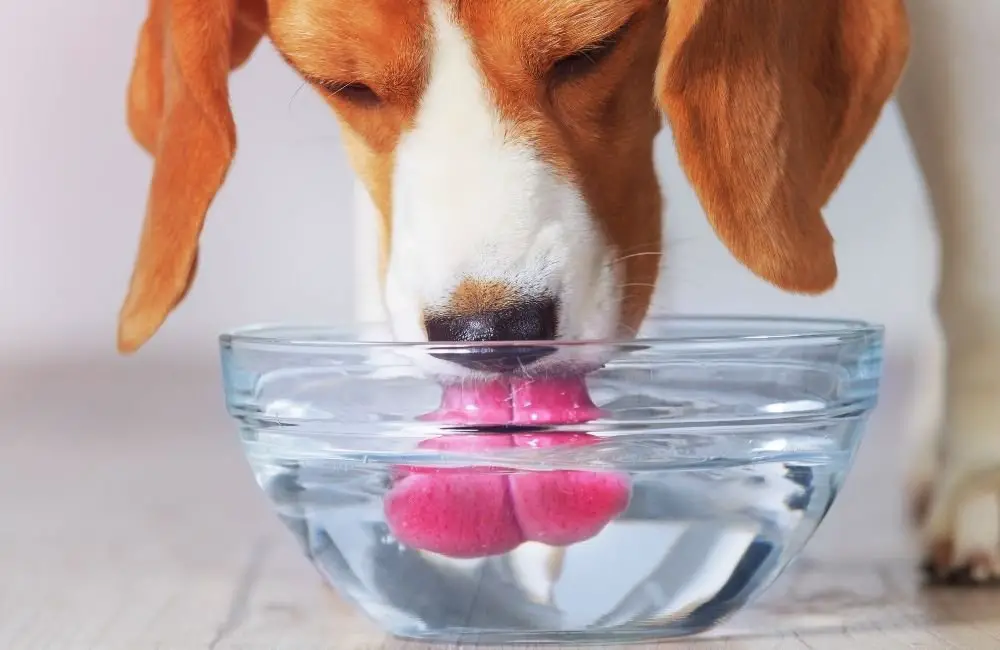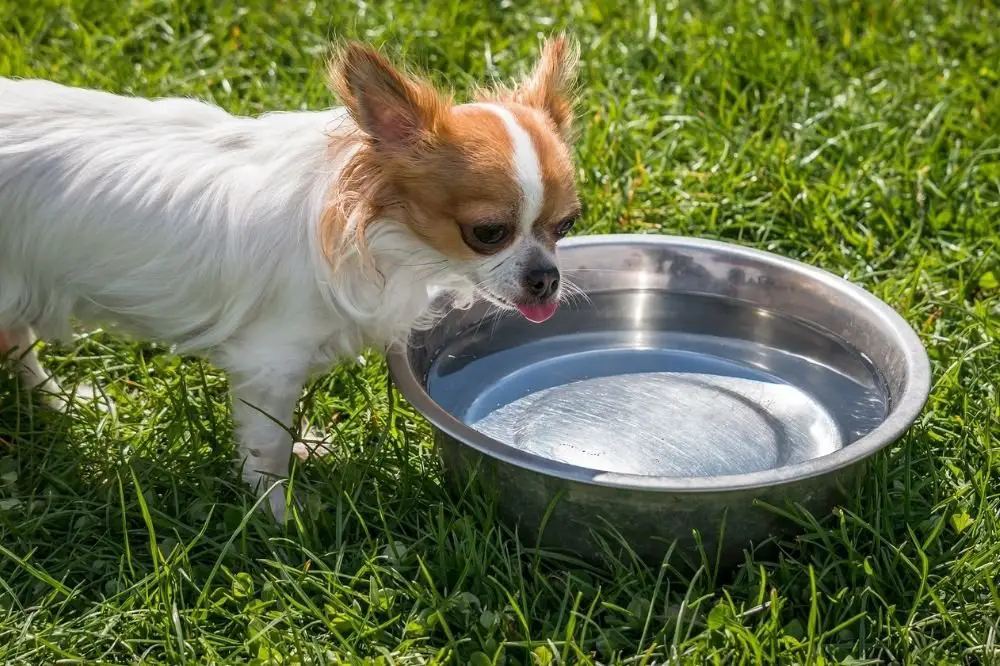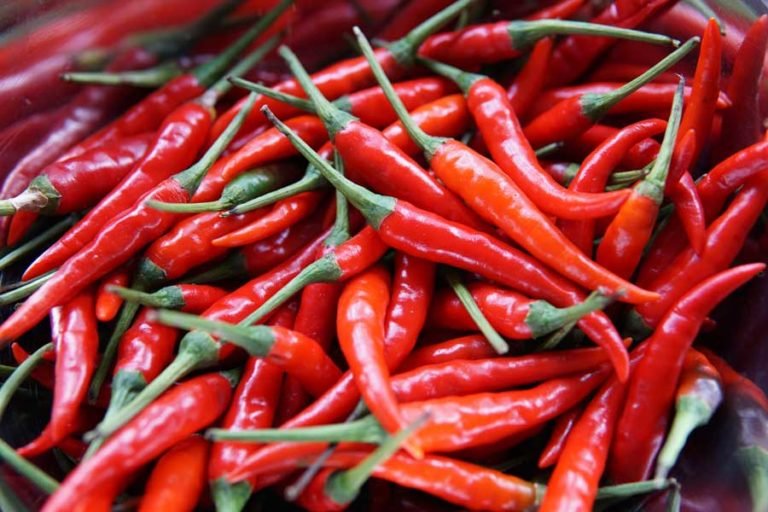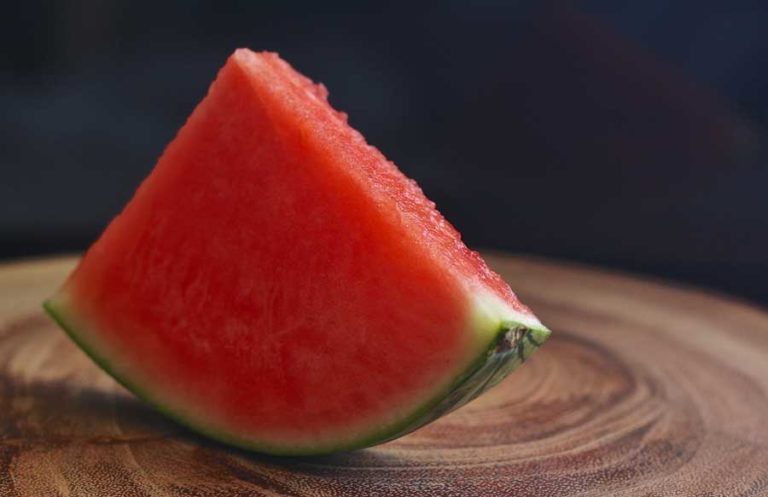How Much Water Should A Dog Drink: A Daily Water Guide
As a pet parent, you want to make sure your furry friend is healthy and happy. One essential aspect of your dog’s health is their water intake. Dogs need water to regulate their body temperature, digest food, and eliminate waste.
But, how much water should a dog drink? In this comprehensive guide, we will discuss everything you need to know about a dog’s water consumption, from how much water they need, to factors that affect their water intake, and tips to ensure your dog stays hydrated.
How much water should a dog drink per day?
The amount of water a dog needs depends on various factors, including their size, age, activity level, and health condition. On average, a healthy adult dog should drink one ounce of water per pound of body weight per day.
For example, if your dog weighs 20 pounds, they should drink around 20 ounces of water daily. However, this is just a general guideline, and some dogs may require more or less water based on their specific needs.
It’s essential to note that the water intake should be spread throughout the day and not just in one sitting. This is because dogs can quickly become dehydrated, especially in warm weather, and need to replenish their fluids regularly.
here’s a table that can help pet owners determine how much water their dog needs based on their weight:
| Dog Weight | Daily Water Intake |
|---|---|
| 10 lbs | 10 oz |
| 20 lbs | 20 oz |
| 30 lbs | 30 oz |
| 40 lbs | 40 oz |
| 50 lbs | 50 oz |
| 60 lbs | 60 oz |
| 70 lbs | 70 oz |
| 80 lbs | 80 oz |
| 90 lbs | 90 oz |
| 100 lbs | 100 oz |
Please note that this table provides a general guideline, and factors such as age, activity level, and health status can affect a dog’s water intake. It’s essential to monitor your dog’s water consumption and consult with a veterinarian if you notice any changes in their drinking habits.
Factors that affect a dog’s water intake
Several factors can affect a dog’s water intake, such as:
1. Age
Puppies need more water than adult dogs because they have higher metabolic rates and are more active. Additionally, senior dogs may have decreased kidney function, making them prone to dehydration.
2. Activity level
Dogs that are more active and exercise frequently will require more water than those who are less active.
3. Weather
Hot weather increases a dog’s water requirements as they lose fluids through panting and sweating. Conversely, colder weather may reduce a dog’s water intake.
4. Diet
Dogs that eat dry food will require more water than those that consume wet food. Additionally, dogs on a high-protein diet will need more water than those on a low-protein diet.
5. Health condition
Certain health conditions, such as kidney disease, diabetes, and diarrhea, can increase a dog’s water needs.
Signs of dehydration in dogs
Dehydration can have severe consequences for dogs, including organ failure and even death. As a pet parent, it’s essential to recognize the signs of dehydration, including:
- Dry or sticky gums
- Sunken eyes
- Lethargy
- Loss of skin elasticity
- Dry nose and mouth
- Thick saliva
- Panting
If you suspect that your dog is dehydrated, seek veterinary care immediately.
Tips to ensure your dog stays hydrated
Here are some tips to help your dog stay hydrated:
1. Provide clean, fresh water
Make sure your dog has access to clean and fresh water at all times. Change their water bowl regularly and ensure it’s filled to the brim.
2. Add water to their food
If your dog is not drinking enough water, consider adding water to their food to increase their water intake.
3. Use a pet fountain
Some dogs prefer to drink running water, and a pet fountain may encourage them to drink more water.
4. Bring water on walks
If you take your dog on walks, bring water with you to keep them hydrated throughout the trip.
5. Provide water-rich foods
Include water-rich foods in your dog’s diet, such as cucumbers, watermelon, and celery.
6. Monitor their water intake
Keep track of how much water your dog drinks daily to ensure they are drinking enough. If you notice a decrease in their water intake, it could be a sign of an underlying health issue, and you should consult with a veterinarian.

7. Consider electrolyte supplements
Electrolyte supplements can help replenish your dog’s fluids and restore their electrolyte balance. However, it’s essential to consult with a veterinarian before giving your dog any supplements.
8. Avoid sharing your water
It’s tempting to share your water with your furry friend, but it’s not recommended. Human drinks, such as coffee or tea, can be harmful to dogs, and sharing water can lead to the transmission of bacteria and viruses.
9. Provide water during playtime
If your dog loves to play, provide them with water breaks during playtime to ensure they stay hydrated.
FAQs
Q1: Can I give my dog ice water?
A1: Yes, you can give your dog ice water, but it’s best to avoid serving it during hot weather as it can cause a rapid drop in body temperature. Room temperature or cool water is ideal.
Q2: Why is my dog not drinking water?
A2: There are several reasons why a dog may not be drinking water, including dental problems, illness, or stress. If you notice a decrease in your dog’s water intake, consult with a veterinarian to rule out any underlying health issues.
Q3: How do I encourage my dog to drink more water?
A3: You can encourage your dog to drink more water by providing fresh and clean water at all times, adding water to their food, and providing water-rich foods such as watermelon and cucumber. You can also try using a pet fountain to make drinking more appealing.
Q4: Can my dog drink from a pool or lake?
A4: It’s not recommended for dogs to drink from a pool or lake as the water may contain harmful bacteria or chemicals. Provide your dog with clean and fresh water at all times.
Q5: Can my dog drink milk?
A5: It’s not recommended for dogs to drink milk as many dogs are lactose intolerant, which can cause digestive issues. Stick to providing your dog with fresh water instead.
Conclusion
Water is essential for a dog’s health and well-being, and it’s crucial to ensure they are drinking enough water to prevent dehydration. While the general guideline is one ounce of water per pound of body weight per day, several factors can affect a dog’s water intake. As a pet parent, it’s essential to monitor your dog’s water consumption, provide clean and fresh water, and consider adding water-rich foods to their diet to ensure they stay hydrated. By following these tips, you can help your furry friend lead a healthy and happy life.





![Can Dogs Eat Tomatoes? [What You Should Know!]](https://atractivopets.com/wp-content/uploads/2020/07/Can-My-Dog-Eat-Tomatoes-768x499.jpg)

